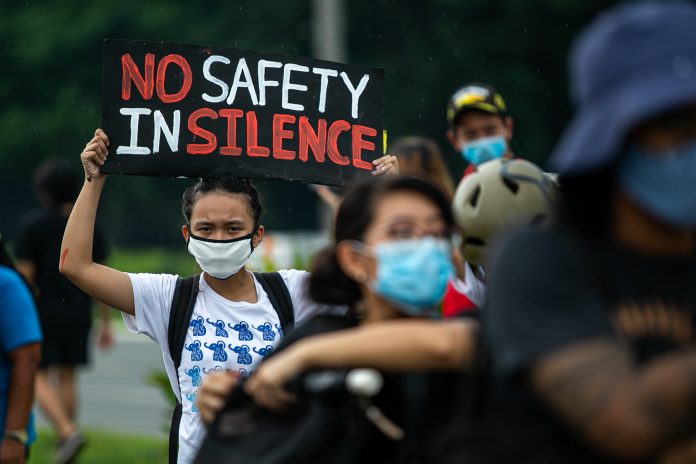A faith-based group appealed to the Philippine government to observe leniency to people who voice opposition to the new anti-terrorism law.
The call came after authorities arrested 11 people, including three minors, who staged a demonstration against the newly signed law in Laguna province on July 4.
“If the government does not want to hear what people are saying, at least be lenient and allow them to practice freedom of expression,” said Father Dionito Cabillas of the Philippine Independent Church.
Father Cabillas, lead convener of Isaiah Ministry, said protests and dissents “are important elements of the democratic process.”
“If one person has something to say about the law, whether affirmative or not, the government must provide the venue for such expression,” Father Cabillas told LiCAS.news.
He said authorities must “expect more” protests and legal actions that will challenge the law because of the “threats it poses to civil liberties.”
The arrests were made one day after President Rodrigo Duterte signed the measures that activists fear would be used against legitimate dissenters.
Rights groups have decried what they described as “illegal arrests” and urged the national police to release the remaining eight activists who are still behind bars.
“It is difficult to defend yourself against a case that is still unknown. Even more so, it is illegal for the police to arrest people without a basis,” said the group Karapatan in a statement.
The group said the arrest was a manifestation that the state forces “would not even care if it was a peaceful mobilization.”
Women’s rights group Gabriela denounced the arrest and detention of its regional secretary general who was among the 11 activists.
The group said the government cannot use the “violation of quarantine measures” narrative because protesters were “following” physical distancing protocols and wearing face masks.
The Anti-Terrorism Act will take effect 15 days after its publication in the Official Gazette or in at least two newspapers of general publication in the country.
National Security Adviser Hermogenes Esperon Jr. said the Anti-Terrorism Council is set to convene to review the provisions of the law and draft its implementing rules and regulations.
In a television interview, Esperon warned that those who criticize and oppose the newly signed law could be “supporters” of terrorists.
He said Section 4 of the new law states that “dissent, advocacy, mass actions, and other similar exercises of civil and political rights” are excluded in the definition of terrorism.
“So, what are they saying, that the law will curtail human rights? I think those people who say that are supporters of terrorists,” he said.
Esperon assured that mass demonstrations and protests are allowed because those are “guaranteed freedom of expression as long as they are silently protesting.”
He said activists have nothing to worry because “we will see to it that this will be an opportunity for us to nurture a culture of security based on orderliness, legality, and due consideration for human life and human rights.”
On July 4, a group of lawyers filed a petition calling for the issuance of a temporary restraining order on the bill.
The group said it “advocates a just and humane law that is for the benefit of all Filipinos.”









